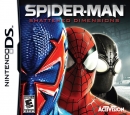Squilliam said:
Xbox 360: ~4 years
PS3: ~4 years
Wii: ~2 years.
I simply don't expect Nintendo to keep the Wii on the market after the successor is released. |
I agree with this. Although the 360's lifespan IMO depends on if Natal flops or becomes huge. If Natal fails, i would lower it to 2/3.
My reasons for the Wii -
The Wii is selling mainly from Nintendo support. Not the 3rd party support like SNES, PSone, PS2...
With poor 3rd party support on Wii (when compared to other consoles), and with Nintendo focusing on N6, i can't see there being THAT much more interest in Wii for new buyers... As the next "Wii Sports", "Wii Fit", Mario... Will all be releasing on the next console.
And i think Sony will keep the PS3 on the market for a loooong time, i also think that the public will want to continue buying it. It has or will have 3D, Motion Control gaming, excellent graphics, Blu-ray. And it is STILL yet to reach a mass market pricepoint.
I think when it does reach $200 (along with a REAL slimline console), we will see the true potential of the system.



























































